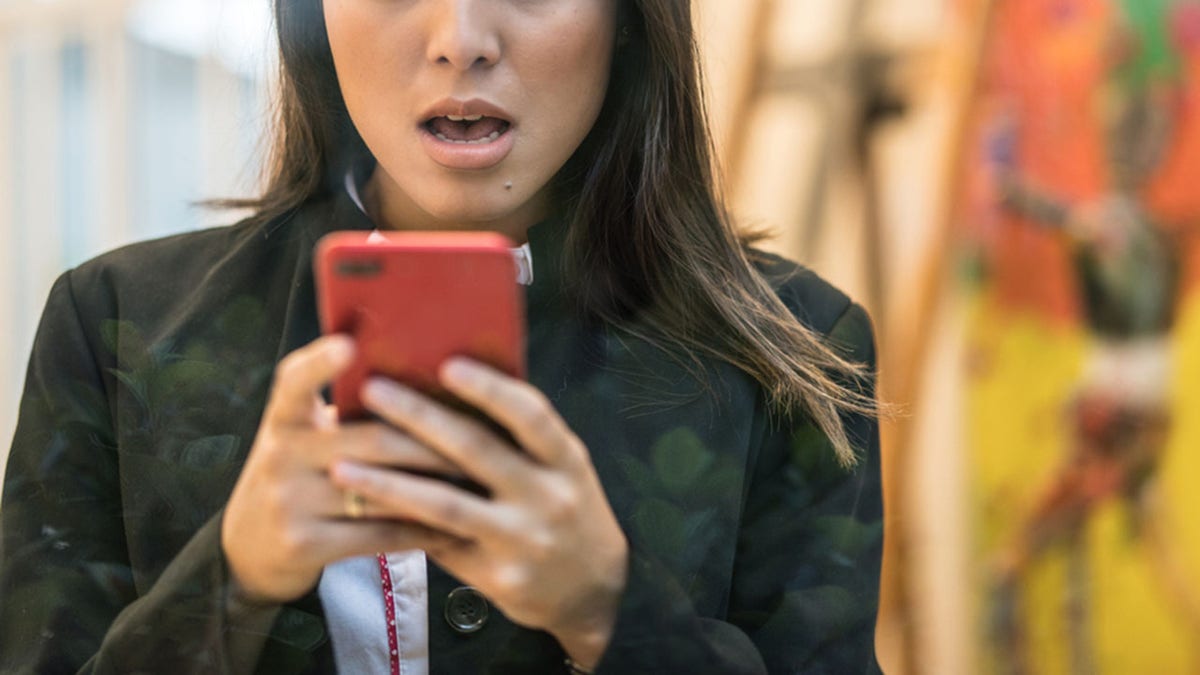-
The Circle of Light Closes and Illuminates the World - 21 mins ago
-
Texas, fueled by adversity and last year’s CFP loss, tops Clemson in playoff opener - 25 mins ago
-
College Football Playoff: Texas Eliminates Clemson, Will Play Arizona State in Peach Bowl - 44 mins ago
-
Juju Watkins drills a 3-pointer over Paige Bueckers, extending USC’s lead over UConn - about 1 hour ago
-
How To Get Your Steps in Over the Holidays, According to Personal Trainers - about 1 hour ago
-
Tom Brady's LFG Player of the Game: Ravens' Lamar Jackson | Week 16 DIGITAL EXCLUSIVE - 2 hours ago
-
Alpha Prime Racing Confirms Huge Crew Chief Signing For NASCAR Xfinity Series - 2 hours ago
-
2 U.S. Navy pilots eject to safety after friendly fire downs their fighter jet - 2 hours ago
-
JuJu Watkins and No. 7 USC hold off Paige Bueckers and fourth-ranked UConn 72-70 - 3 hours ago
-
Today’s ‘Wordle’ #1,282 Answers, Hints and Clues for Sunday, December 22 - 3 hours ago
From copyright infringements to oversharing information, these things could get you in trouble on social media
Social media, when used appropriately, can be a great channel for sharing experiences and staying connected with others.
Although social media can be a creative outlet that brings people together, it also has a dark side.
In order to stay safe on social media, it’s important to know what types of posts or accounts could get you into legal trouble.
SOCIAL MEDIA SAFETY ADVOCATE URGES PARENTS TO ‘WAKE UP’ AND TAKE CHARGE OF BIG TECH IN CHILDREN’S LIVES
From copyright infringements to defamation and leaving yourself vulnerable to danger by oversharing, there are many different legal facets to be wary of whenever you are posting online.
Read on to uncover a few common situations that social media users should be aware of in order to stay safe and stay out of legal trouble.
Always be cautious of everything that you put out on social media. You never know who is on the other side of the content you are posting. (iStock)
- Sharing images that aren’t yours without permission
- Hacking and fraud
- Oversharing
- Uploading defamatory statements
- Sharing photos that don’t put you in the best light
- Be cautious of music
1. Sharing images that aren’t yours without permission
As a general rule of thumb, stay away from posting photos to social media that you didn’t take yourself.
If you post a picture from somewhere like Google or Getty and don’t have the proper permission to do so, usually by paying for the photo, you could find yourself facing a copy infringement claim.
SOCIAL MEDIA’S MOST VIRAL TRENDS OF 2023
If you are going to post a picture that isn’t yours, make sure you have permission from that source to do so. If the person whose photo you’re posting finds out, that person could file charges against you.

Avoid sharing pictures that are not yours without permission on social media. (iStock)
2. Hacking and fraud
What seems like a simple joke, such as logging into a friend’s account and posting an embarrassing photo there, could turn into a legal battle.
Hacking another person’s account (whether it’s someone you know or not) is illegal.
Having a secure password that your accounts live behind is one vital step to take in order to make yourself less susceptible to hacking. Don’t share your password with anyone, and consider changing it here and there to make your account more secure. Having two-step verification set up is another way to keep your account safe from hackers.
Pretending to be someone else on social media is another situation that could get you into trouble with the law.
Never make an account posing as another person or entity.
3. Oversharing
While there’s nothing wrong with posting photos and videos to social media, what you post is important to keep in mind.
With the new age way of posting your day-to-day life on social media, oversharing has become a problem.
BALANCING THE PROS AND CONS OF SOCIAL MEDIA SCREEN TIME
There is certain information that you should refrain from putting on social media to keep yourself safe.
For example, information like your exact location or the dates you’ll be away on a vacation are better kept to yourself.
Even something that seems like a simple post, such as showing a ticket for a concert you’re going to, can be dangerous. A lot of your personal information is on the ticket, as well as a bar code that a scammer could attempt to duplicate.

Take time to think before rushing to social media to post about a bad experience you’ve had with a company or a person. What you say could wind up being used against you. (iStock)
4. Uploading defamatory statements
When you have a bad experience at a restaurant, hotel or with another individual in general, you may be tempted to go straight to social media to blow off steam.
When you go through an unsatisfactory experience, don’t immediately run to social media to share. If the person or company you are shaming is identifiable, they could sue for defamation.
There are certain factors that need to be present in a case in order for it to be categorized as defamation. The Legal Information Institute of Cornell Law School says these are the four elements that a plaintiff must show in order to prove defamation.
- A false statement purporting to be a fact
- Publication or communication of that statement to a third person
- Fault amounting to at least negligence
- Damages or some harm caused to the reputation of the person or entity who is the subject of the statement.
While defamation is often difficult to prove, it’s still safe to err on the side of caution.
If you feel inclined to speak about your experience, consider talking to family and friends about your poor experience, rather than sharing with thousands of followers.
If you do choose to share a bad experience you’ve had through an online review or on social media, be sure that everything you are posting is fact and true to what happened.
5. Sharing photos that don’t put you in the best light
When posting on social media, it’s easy to forget about who is on the other side of that post.
It could be an employer or a future one, for example.
CLICK HERE TO SIGN UP FOR OUR LIFESTYLE NEWSLETTER
Don’t post photos to social media that could taint your reputation.
When you post, remember that even the delete button can’t stop someone who’s already seen it or even taken a screenshot of the photo.
Before posting, think to yourself, “Would I be OK with my boss seeing this?” If the answer is no, it’s probably best to keep that photo to yourself.
6. Be cautious of music
With music, a lot of social media platforms like Instagram or TikTok have music licensing already built in.
For example, if you’re posting a TikTok video, the songs available to you through the app are OK to use.

Choosing a song from the media library of apps like Instagram and TikTok will prevent you from a copyright lawsuit. (iStock)
If you are using a song that is not in the library, this is when you want to be weary, because you’ll need to get permission from the owner to use that tune.
CLICK HERE TO GET THE FOX NEWS APP
YouTube, for example, is a place where you’ll want to be extra cautious of this. When posting a video to YouTube, make sure you are using music that is copyright-free.
Again, if the music is not copyright-free, you’ll need to go through the proper steps of gaining permission from the owner of the song you are using in order to avoid legal trouble.
For more Lifestyle articles, visit www.foxnews.com/lifestyle.
Source link






























